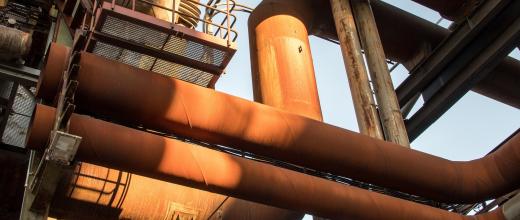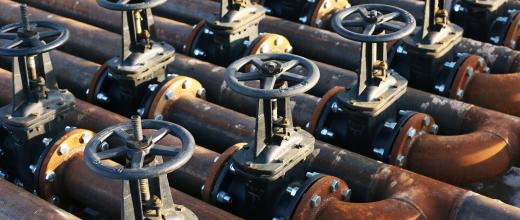11.09.2024
3 minutes of reading
From September 1 to 5, corrosion specialists gathered in Paris for the EUROCORR 2024 conference, organized by the European Corrosion Federation (EFC) and the French Anticorrosion Centre (CEFRACOR). A glimpse into the work presented by the IFPEN teams at this event, under the slogan “A step forward in societal awareness of material degradation issues”. Just as the Paralympic Games were taking place in the capital, the EFC was also honoring the finest experts in the field.
Coinciding with the Paralympic Games, over the space of a few days, Paris became the European capital of corrosion control, hosting the EUROCORR 2024 conference organized by the European Corrosion Federation (EFC) and the French Anticorrosion Centre (CEFRACOR).
Of course, IFPEN’s corrosion activity was prominently represented at this international event on French soil, where it showcased its research work, with a strong focus on low-carbon energies.
The European Corrosion Federation honors an IFPEN expert
This 2024 edition also witnessed IFPEN researcher François Ropital receive a lifetime achievement award in the form of an Honorary Fellow status from the European Corrosion Federation (EFC), for which he spent many years leading the “Corrosion in the refining and petrochemical industries” working party. He was also instrumental in creating two new parties, one on CO2 corrosion and one on corrosion in green and low-carbon energies.
IFPEN researchers working on corrosion are focusing on renewable energies
For more than a decade, IFPEN’s focus on the development of new, non-fossil energies has been accompanied by new scientific and technological challenges involving research into corrosion. In 2020, it organized a workshop on the challenges of corrosion in low-carbon energies. IFPEN also played an active role in setting up a new working party within the European Corrosion Federation, « Corrosion in green and low carbon energy technologies »,with a mirror party in France within the French corrosion commission for the energy and process industries (CEFRACOR).
Research conducted since then, either independently or through collaborations, has focused on, for example :
• developing geothermal energy, which presupposes selecting appropriate materials that can withstand the advanced levels of corrosion and fouling caused by mineral deposits;
• technologies to capture, transport, store and utilize CO2 (CCUS);
• the structures of offshore wind turbines, which are vulnerable to damage from wear and tear due to friction and mechanical stress, coupled with corrosion caused by seawater;
• the production of biofuels from plant residues in biorefineries, which also poses new challenges in terms of corrosion due to the presence of specific compounds such as oxygenated compounds;
• metallic materials used in the production, transport, storage and utilization of hydrogen gas, which must be capable of withstanding the phenomenon of hydrogen embrittlement.
Check out the IFPEN website for a video on the resources and research topics covered by our corrosion activity.









